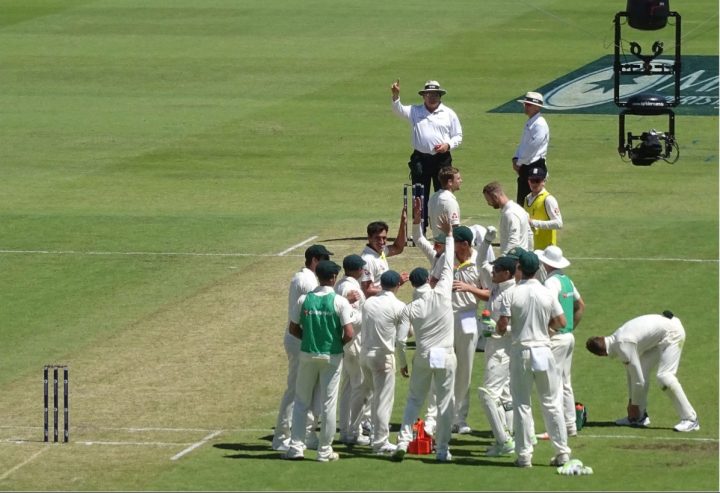The ECB long since resembled less an administrative body than a Shakespearean tragedy, but even by their own Byzantine standards the last few days have really taken the biscuit. And there is more to come. If this is Macbeth, we are still only on Act Four. For all this saga’s twists and turns of bloody-handed usurpation and toxified king-making, perhaps, though, the Scottish play is a less fitting analogy than I, Claudius – with Livia tiptoeing past the corpses to plot her next defenestration.
The ceaseless, agonised contortions of English cricket stem from one simple root – the catastrophic failure in January 2014 to properly address the problems and challenges posed by the disastrous tour to Australia. That was the moment for rational, forensic and far-reaching analysis into what had gone wrong, who was responsible, and what were the solutions.
Instead, the ECB’s response took the form of a lazy, insular, heads-in-the-sand, and self-protective, whitewash. While the police cordoned-off the crash scene and chalked a white line around the dead body of English cricket, Giles Clarke grabbed a megaphone and yelled “there is nothing to see here – please move on” to anyone who dared ask awkward questions.
Clarke oversaw a response to the 2013/14 Ashes which amounted, in a nutshell, to “more of the same, with the same people”. Alastair Cook was encased in lead to protect him from radioactive fallout. The highest-scoring player was sacked, for no obvious reason beyond the creation of a sacrificial scapegoat. The vacancy for head coach was filled by a man whose re-appointment caused no inconvenience beyond reinstating his IT login and security pass.
There was no inquiry into what had gone wrong, no soul-searching or honest appraisal of whether the functioning and philosophy of Team England were remotely conducive to progress.
January 2014 was English cricket’s Treaty of Versailles – a sclerotic, recrimination-fuelled hatchet-job whose failure to resolve underlying problems made inevitable decades of further tension and conflict.
The ECB’s strategy, sixteen months ago, was so grievously flawed, so epically myopic, and so morally corrupt, that their consequences are not merely still being felt but continue to cause bloodshed, acrimony, and chaos.
From the moment Peter Moores was re-hired, the only possible outcome was that he would be sacked again, in ignominious and undignified circumstances. It was only a question of when. Turns out, in the end, that Moores wasn’t up to the job. Who knew?
Of all the possible candidates to replace Andy Flower, Moores was the only one who had been proven not to be good enough – having already been fired from the role once before. But he was also the only candidate guaranteed to provide continuity and doctrinal obedience.
From the moment the ECB decided the future was to be built around Alastair Cook, the only outcome was a team which continued to play in the same manner as the one which had lost five-nil to Australia: diffidently, incoherently, inflexibly, and apologetically. By sticking with a captain with so many question marks over his head, the ECB exposed him to a scrutiny and pressure which could only impair his batting form – plunging the team, meanwhile, into a perennial, exhausting fog of scrutiny, debate, and acrimony.
From the moment the ECB sacked Kevin Pietersen, they hamstrung and destabilised every aspect of Team England. Any result other than a victory invited the question – what if Pietersen had been playing? Any team-sheet invited the question – why isn’t Pietersen selected? Any managerial appointment was made on the condition that said manager agreed to endorse the Pietersen ban, which not only limited the field but condemned every official to authority-sapping inquisition and dissemblance. It was the cricketing equivalent of putting a prawn behind a curtain rail and then trying to rent out the flat.
From the moment the ECB refused to investigate why England lost the Ashes five-nil, they ensured that no lessons would be learned or progress made. Did England fail because their players were overworked, the coaching was misjudged, the selection awry or the feeder-system inadequate? Why did Australia perform better? Because these questions were never asked, no answers came forth, and the same mistakes were blindly repeated.
Paul Downton was hired as England’s managing director before the 2013/14 Ashes, but his appointment was cut from the same clannish, insular cloth as the post-series decision making. When the ECB had the option to harness the leadership and energy of a modern, outward-looking visionary, of significant international cricket experience, they instead chose an also-ran who’d spent the last twenty years following the game on Ceefax from his City office – but was rather good company on the golf course.
None of this is wisdom in hindsight. Thousands of observers made these very points at the very time the ECB were making these decisions. Those observers were generally derided and patronised by people close to the nexus of power, who felt entitled to imply – or even state – that they knew better than the great unwashed.
And what’s actually happened? In the sixteen months since that fateful January, only England’s test series win against India blots a copybook of abject and persistent failure. Paul Downton has been sacked. Peter Moores has been sacked. James Whitaker will soon be sacked.
England could have spent those sixteen months rebuilding, rethinking, and regenerating. Instead, while the side went round in circles, the ECB put their fingers in their ears and argued that black is white. Only now, at the eleventh hour, and under new management, has reality began to dawn – with a panicked orgy of blood-letting and last-minute bandage application.
The ECB could so easily have given themselves nineteen months to properly prepare for the 2015 Ashes. Instead they have given themselves two months. In January 2014 the questions were: How do England recover to beat Australia? What will the new managing director do? Who will be the new coach? Will, and should, Cook continue as captain? A few weeks later, another question was added – can and will Kevin Pietersen return?
Tomorrow, Andrew Strauss and Tom Harrison – the newish ECB chief executive – will take questions at a press conference. And what will be on the agenda? How do England recover to beat Australia? What will the new managing director do? Who will be the new coach? Will Cook continue as captain? Will Kevin Pietersen return?










I know it feels like a long time ago but it was 2013/14, not 12/13.
You have to say though an extra 11 months to get ready probably wouldn’t have made any dicference.
Yes, you must get the dates right, Maxie.
After all, I wouldn’t want anyone to venture over here and dismiss you as a “vile ignoramus”.
I’ve taken the liberty of going back and correcting them!
KP 150 up.
the young lad has got a 200, piers morgan must watch every match kp plays
Terribly unfair….
….. on the Treaty of Versailles.
“The ceaseless, agonised contortions of English cricket stem from one simple root – the catastrophic failure in January 2014 to properly address the problems and challenges posed by the disastrous tour to Australia. That was the moment for rational, forensic and far-reaching analysis into what had gone wrong, who was responsible, and what were the solutions.”
Spot on.
Why can no one else acknowledge this?
Is it because the tame press are complicit in these “ceaseless, agonised contortions”?
Maxie,
I just finished reading that. It’s really excellent work.
There’s nothing emotive or hyperbolic about it.
And I think in the last few paragraphs you really make the cases as persuasively as I’ve heard it anywhere.
After all this back and forth about who knows best, what does the scoreboard say? Since the Ashes, are there any decisions made by those in charge that haven’t proven to be failures? If these people have fucked up over and over, why are they entitled to the benefit of the doubt on the decision to axe KP? What does it say about the tame press who blindly went along for the ride and are now trying to decide if it’s safe to change positions without anyone noticing?
The challenge lies in forcing these points into the open to the extent that they can no longer be ignored. And you’ve done a fine job here in that regard.
Great work.
TRS
In a nutshell. Nail – head. Thank you for this article.
Excellent analysis Maxie, though I’m with SimonH, more Congress of Vienna with Flower as Metternich
KP’s maiden triple century. And perfectly timed, too. What an entertainer this guy is.
He’s managed to f*ck up Leicestershire’s bowling figures and Strauss’ first week as DoC in one go.
Second top scorer : 36 from some guy called Sangakkara? Anyone heard of him?
BOOM!!!! 300
And KP has just hit 300. I burst out laughing when I saw. You can’t deny the man has a sense of occasion, what with Strauss officially being unveiled tomorrow and all. The plot thickens…
So what’s going to happen?
If the plan was to sack maintain the veto of KP, I can’t imagine they’ve changed their mind based on one innings.
They should pick him, but they’ve been unwilling to. Does this innings truly alter the calculus, apart from making it way more cosmetically awkward for them to present it and stand by it?
This innings has to be good news for Jimmy W.
If they sack him now, how will they ever find anyone with so little integrity who will be able to shamelessly maintain the, “Kevin isn’t part of our plans” line?
Wonderful article.
Will they ever admit they were wrong?
KP meeting Andrew Strauss and Tom Harrison tonight – according to Sky. Would love to be a fly on that wall….
There are basically two outcomes:
1) The veto is maintained: Given he’s just scored an unbeaten 300, that’s going to be a hard sell. Frankly, England are mediocre and don’t really have the luxury of leaving one of their best players on the sidelines. If Strauss tries to front up tomorrow and trot out the same old lines about ‘moving forward’, the Kafkaesque quality of this whole charade may finally reach critical mass i.e. the point where too many people just say ‘Nah, this is complete bullshit’.
2) The veto is dropped: In which case they have to admit the past 18 months were a mistake and we get to watch the tame press try to sneakily adjust to the new party line while pretending that’s what they thought all along and nothing has changed.
Either will be awesome.
Alastair Cook’s England (TM) may be as boring as hell on the pitch but they certainly provide some entertainment off it.
Not quite sure if it’s melodrama or farce, though.
George Santayana argued that ‘history repeats itself, first as tragedy, then as farce.’
Your proposition will be put to the test this evening.
KP was wonderful, entertaining,intelligent cricket and he managed his triple century without running his partner out! (Unlike Cook who run Ali out). KP also did well in the Big Bash. It is unthinkable not to have KP in the England squad against NZ. Strauss always looked to do the right thing for English cricket as captain – stepping down when he was out of form. (Take note Cook!). Fingers crossed he does the right thing now.
Strauss’s remit number one: keep KP out at any and all costs.
Period.
I see Twitter is busy tonight. You can almost hear the tears from some posters as they now realise what this may mean for their beloved Cook. Well don’t worry, he may or may not have said he won’t play with KP, but considering he didn’t have the integrity to offer his resignation after the Ashes, or do the decent thing for the team at World Cup or the truly abysmal showing on the fourth day at Trent Bridge, he has no intention of giving up anything off his own bat(pardon the pun). He will hang on like grim death until they prise his fingers off. He is not a good enough captain to insist who should play or not. He either agrees or resigns, either way, Cricket wins. Thanks for your contribution Cookie and good luck for the future.
Many thanks for your very kind words – glad you found the piece interesting.
To be fair, they didn’t quite continue on with the same personnel after the last Ashes. Run through the first test side and you get –
• Carberry – gone
• Trott – gone for a while, rightly or wrongly back for a little while, now gone permanently
• Pietersen – gone (or is he?)
• Root – though he was gone by the end of that series, was back soon enough and doesn’t look like going again any time soon
• Prior – gone by the end of the series, back for a little while but also looks gone permanently
• Swann – gone
• Tremlett – gone, probably permanently
And it doesn’t get much better when you move on from the Gabba XI and look at others who played in the series:
• Panesar – gone although he might get back in the sub-continent or UAE
• Rankin – you wouldn’t bet he’d ever be back
• Bairstow – as keeper surely gone. As a batsman might get back
• Bresnan – most likely gone
• Stokes – undisputed success of the tour – now looks shaky
• Borthwick – managed to simultaneously top the averages and look a long way from being a test spinner. Will have to do a lot to get back
Doesn’t actually leave you with too many (and doesn’t mention Steve Finn, who didn’t play any tests. You’d hope for his sake he’d be back at some stage).
Mind you, that quibble aside, the whole thrust of your piece remains completely right.